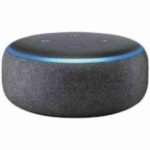While driving in the United States several weeks ago, I heard an individual on the radio talk about our electronic age and the influence it’s having on our society. I found it thought-provoking because he was making some valid points, including new statistics on the depleting attention span of American youth. He quoted one teacher as stating with great concern that his students were so tied to their smart phones that when
the school made a new ruling that no phones were allowed in the classroom, he witnessed an addiction withdrawal—yes, he said addiction withdrawal. Knowing that the phone represented a social connection and the measure of popularity, the teacher was not surprised. But despite his disgruntled students, he was happy to witness an increase in their attention span. The phones were no longer a distraction, and there was the hope that face-to-face communication skills would be strengthened.
Closer to home, on November 4, 2019, the Ministry of Education restricted the use of cell phones in Ontario classrooms. The restriction would be in effect “during instructional time in school, though exceptions will be made if a student needs their phone for medical or special education support purposes.” Although the jury is still out on the effectiveness of this restriction, I’m left wondering just how much are we affected—dare I say controlled—by the electronic age in which we find ourselves?
Admittedly, I have a phone. However, when I’m in the company of my  grandchildren, I tend to leave it in my purse. Why? Because it’s a flip-up phone and, having heard several times that I need to get current with technology, I keep it out of sight.
grandchildren, I tend to leave it in my purse. Why? Because it’s a flip-up phone and, having heard several times that I need to get current with technology, I keep it out of sight.
But despite my seemingly dated awareness of current technology, I do own an Alexa Echo Dot, thanks to my son and daughter-in-law. I call this virtual personal assistant The Maid, not because she does our dishes, cleans our home or does our laundry. I simply ask her to set a timer,  and she does; or I ask for a seven-day forecast, and she complies. She will also spell a certain word or even tell me a story or joke. Entertaining? To some degree. Intimidating? A little. After all I am talking to a round, black box sitting on my desk!
and she does; or I ask for a seven-day forecast, and she complies. She will also spell a certain word or even tell me a story or joke. Entertaining? To some degree. Intimidating? A little. After all I am talking to a round, black box sitting on my desk!
This electronic phenomenon leaves me wondering, is she listening to me? Apparently. As long as she is plugged in, she is waiting for the wake word, and in my case, her name. It is presumed she has limited capabilities and knowledge, but when I asked for information about COVID-19, she had plenty to say! As intimidating as that was, I should not have been surprised, given how much technology has penetrated our society and transformed how we communicate.
As to this critical time in our lives, it’s very natural that we are talking and listening about the pandemic. But to whom? It’s understandable that we use our phones, the internet, and even our virtual personal assistant to find out the latest statistics, especially in our own province and city or town. We read reports from the latest experts. Physicians, scientists, and politicians share their concerns, and well-meaning individuals post helps as an encouragement, and much of what we read and listen to is credible information.
Nevertheless, when we learn from doctors and scientists that what they predicted one day has come true the next day, we become nervous. Then our fears mount as we listen to the safeguards placed on society and hear grave predictions for the future. It would be easy to find ourselves glued to our TVs or cell phones, anticipating the worse. Paul David Tripp, pastor, author and conference speaker describes this behaviour as “trouble-making, problem-meditating, and God-forgetting.” He goes further to claim that when this practice is in play, the trouble looms larger and larger and God seems smaller and smaller, resulting in “paralyzing-producing, anxiety-resulting fear.”
Where am I going with this? Simply that wisdom and discernment must accompany what we hear and for sure what we share. We must not fan the monster of fear with ill-founded information; but at the same time, we must listen to wise counsel while keeping our focus on the One who knew of this disease at the creation of the world. God is in control. He did not give us the spirit of fear, but of power and love and a sound mind.
“I know not what the future holds,
but I know Who holds the future.”
Known Only to Him
Written by Stuart Hamblen – Sung by Elvis Presley




Follow Me!